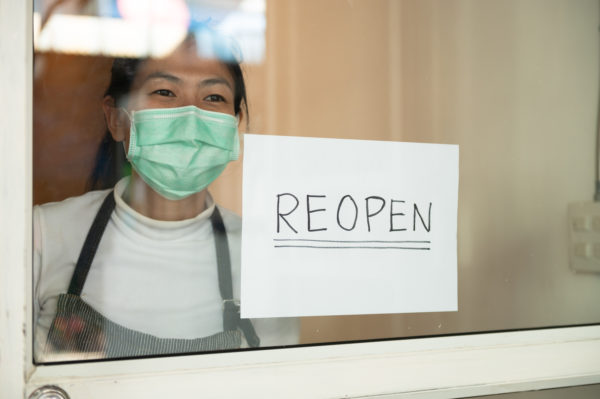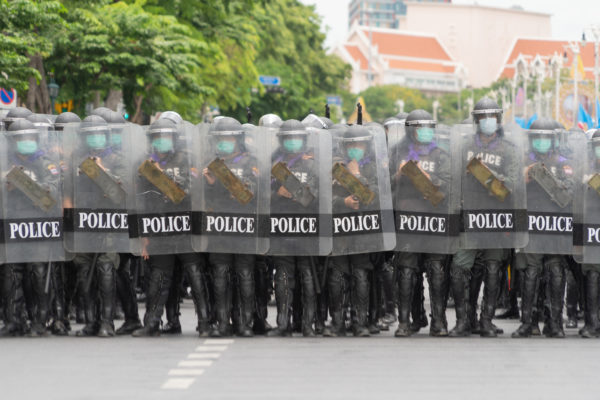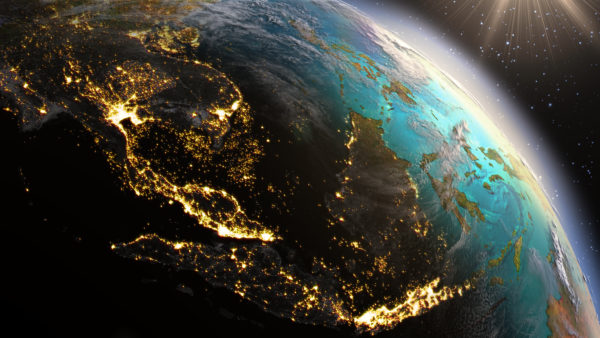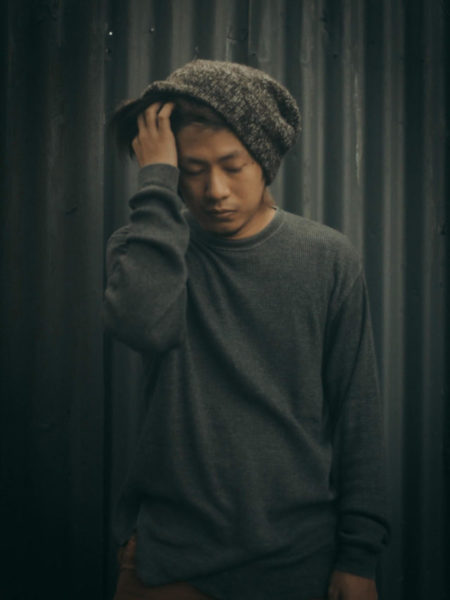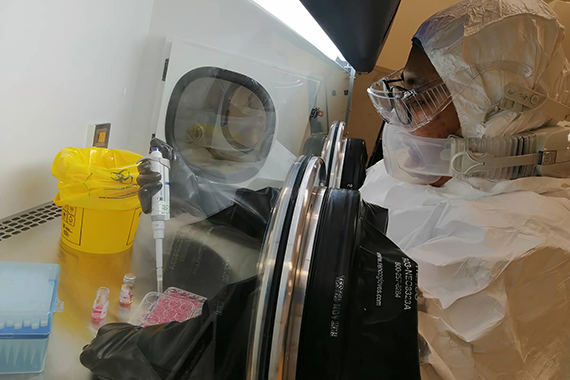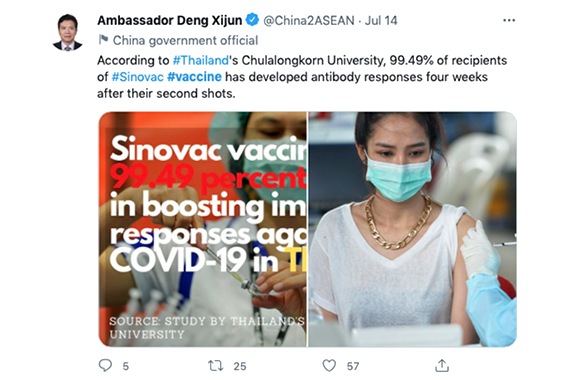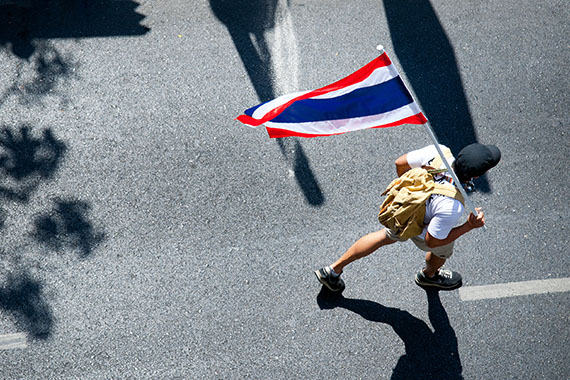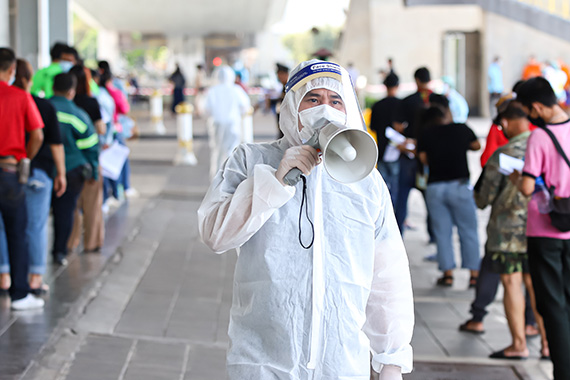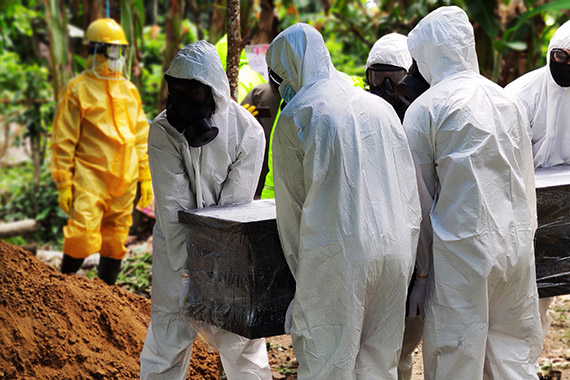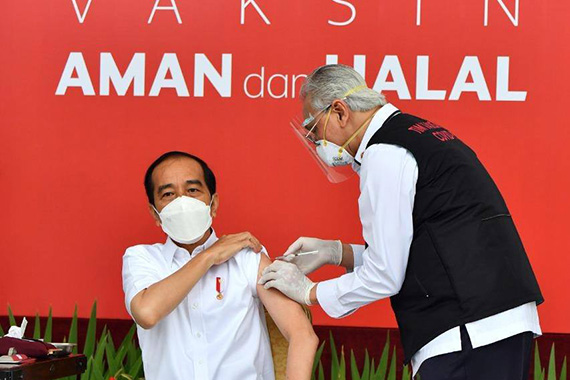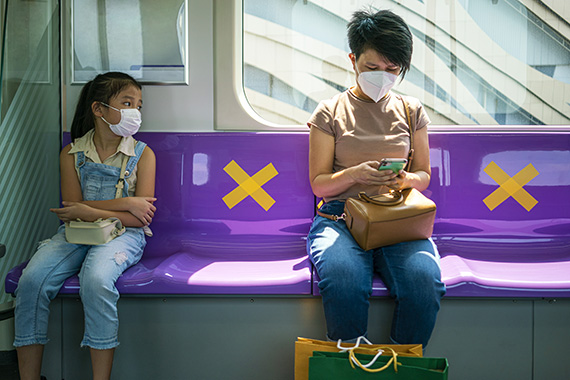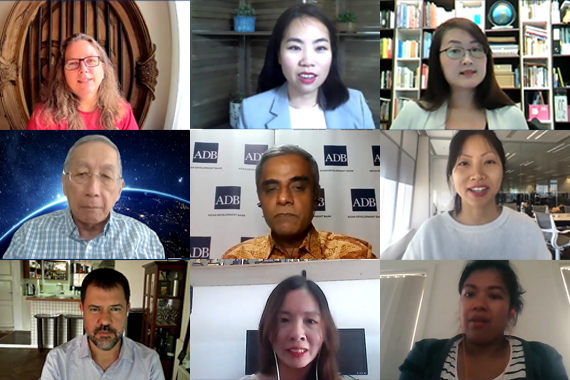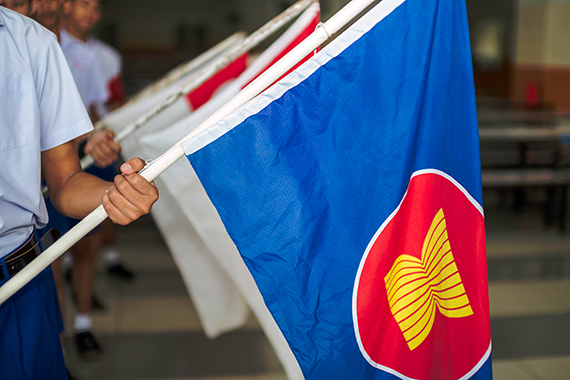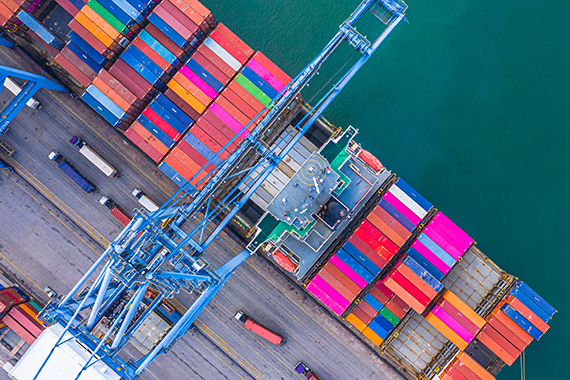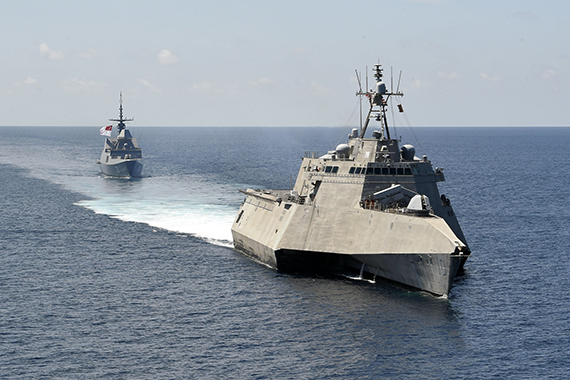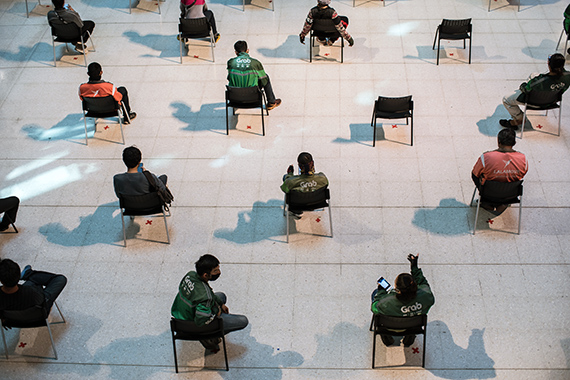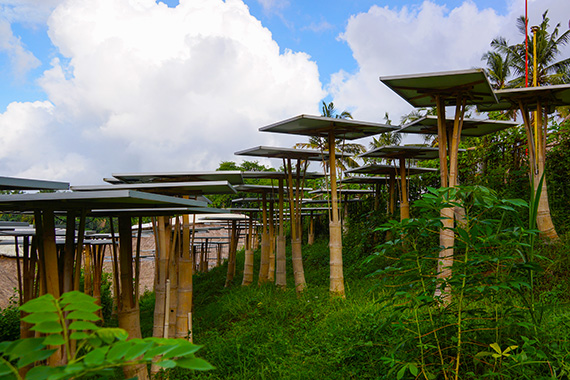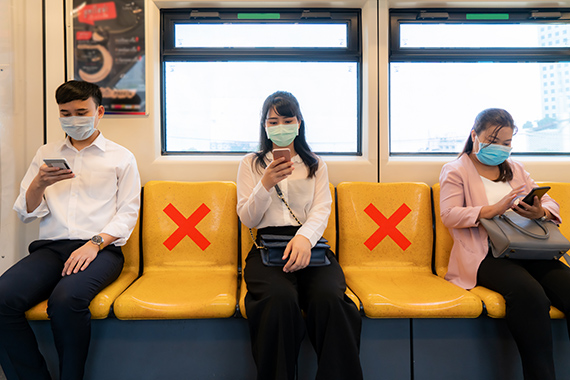COVID-19, Government and Security in Southeast Asia
By Richard Maude
Published on 12th October 2020
Read in 16 minutes
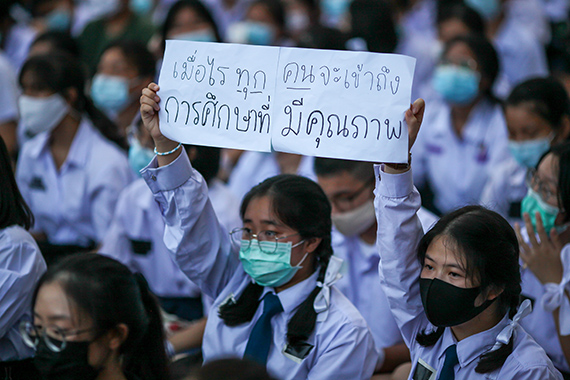
Student Protests in Thailand 2020 – Kan Sangtong – Shutterstock
Introduction
Rocked by the pandemic and its economic toll, Southeast Asia faces an uncertain decade after a long period of relative stability and economic growth. The pandemic is affecting all aspects of Southeast Asian life and society, including its politics and security. This essay in the Asia Society Policy Institute’s series of reflections on COVID-19 and Southeast Asia describes some of the most significant political and security effects of the pandemic and canvasses policy options for the region’s partners. In the short term, the pandemic is reinforcing a pre-existing trend of democratic regression and illiberalism, evident in Southeast Asia as it is world-wide. Expanded executive powers to fight the pandemic are being misused to stifle political opposition, close down space for civil society and attack free media. In some “partly free” Southeast Asian nations, military-led responses to the pandemic have been ineffective, led to human rights abuses and have boosted military influence at the expense of civilian administrations. Intolerance of ethnic minorities and migrant labour has increased.The medium-to long-term implications are less clear. Major global shocks sometimes drive significant change, causing governments to fall or ending long-running conflicts. After a period of fading legitimacy, for example, the collapse of the Suharto regime in Indonesia was triggered by unrest during the 1997 Asian Financial Crisis. No such dramatic shifts are evident yet. Southeast Asian governments mostly have firm control over the levers of power, or share power with the military in the case of Myanmar. There are few internal or external forces likely to generate a broad-based reversal of democratic regression and illiberalism any time soon. Still, it is too early to conclude with any confidence that the pandemic won’t lead to change in Southeast Asia’s politics. This will depend on many hard-to-judge variables, the most important of which will be the length and severity of the region’s economic downturn. Rising unemployment and inequality could give further momentum to political protests in Thailand, for example. Responding to illiberalism in Southeast Asia is a thorny diplomatic challenge. But creative, confident diplomacy can still find space for Southeast Asia’s partners to promote their values and advocate for change without shutting the door on closer cooperation.Some elections are being postponed. Elsewhere, immense logistical challenges raise the possibility of more disputes over election outcomes.
Skip to section:
Emergency Measures and the Pandemic Silencing the Critics When Militaries Run the Show COVID and Conflict in Southeast Asia Elections Policy Responses Interviews About the AuthorEmergency Measures and the Pandemic
States of emergency are not necessarily inconsistent with international human rights law. At times of crisis, including pandemics, they can provide important regulatory or legislative powers to enforce vital public health measures. In the hands of electoral autocrats in Southeast Asia, though, such measures are easily abused and operate with scant oversight and safeguards, including from the region’s courts, which have shown little ability or inclination to curb executive overreach.
In the Philippines, President Duterte first declared a public health emergency and then a national health emergency. These measures gave the President extensive powers to impose and enforce lockdown measures and to mobilise public and private resources to fight the pandemic.
The Bayanihan to Heal as One Act and its successor, the Bayanihan to Recover as One Act, also authorise important investment in public health measures as well as social assistance packages and other stimulus spending.
Since the introduction of emergency measures in the Philippines, human rights groups have raised consistent concerns about the use of such powers to harass activists and political opponents, threaten journalists and detain or punish thousands of Filipinos found breaking quarantine, many of whom cannot afford to self-isolate. Police killings of alleged drug offenders also increased significantly during the Philippines’ lockdown.
In the meantime, the pandemic has not slowed Duterte’s broader war on his political opponents and the free media. At the same time, he pushed through a highly controversial anti-terrorism bill that significantly broadens the definition of terrorism and contains provisions that will give new cover to attack and silence government critics.
In Cambodia, the increasingly repressive Hun Sen regime hardly needs new powers to exert its control. For years, the Cambodian government has used a range of judicial and extra-judicial tools to arrest, ban and intimidate political opponents as well as to clamp down on non-government organisations and journalists.
Using the COVID-19 pandemic as cover, however, the Cambodian parliament has passed legislation giving the government new powers which could be used to quash dissent.
The new state of emergency law has not been activated, but already serves to further intimidate political and human rights activists. Hun Sen appears to be holding it in reserve for a future moment of need, perhaps if economic crisis leads to greater political unrest. The law allows a state of emergency to be declared at a time of an urgent public health crisis, but also in a broad range of other circumstances, including a “grave disruption to national security and to public order”.
The law gives the government new powers to intercept communications, ban or restrict the distribution of information and restrict freedom of assembly. A “catch all” provision provides for “other measures that are deemed appropriate for and necessary to respond to the state of emergency”.
A state of emergency can be extended indefinitely and operate without any oversight or independent scrutiny. Heavy criminal penalties can be applied.
In Thailand, the government of prime minister Prayuth Chan-ocha invoked a 2005 decree that provides sweeping powers in emergency situations. The regulations promulgated under this decree include public health measures necessary to contain the pandemic. But others go further and are extremely vulnerable to abuse, including measures to maintain “public order” and to prohibit information which is “false or may instigate fear among the people”.
Initially introduced in March for a three-month period, the emergency measures have been extended six times. Human rights groups have documented numerous instances of these powers being used to arrest and charge political activists. After a period of not enforcing a ban on assembly, the Thai government is attempting to shut down recent student-led protests – a growing political challenge to the government and monarchy – by banning gatherings of five or more people in Bangkok, as well as news that might “affect national security”. The government has also argued the protests risked spreading the coronavirus.
Silencing the Critics
With or without emergency laws, many Southeast Asian governments have extensive powers to tackle “misinformation”. These illiberal laws are regularly used to stifle free speech and harass and detain political opponents.
The pandemic has provided additional cover for some governments to go after political activists and to stifle any criticism of government performance during the crisis.
“Fake news” arrests have continued at a steady pace in Cambodia. In some cases, simply expressing concern about the course of the pandemic in Cambodia, without any direct criticism of the government, has been enough to trigger detention.
In Thailand, human rights groups have documented criminal proceedings against numerous individuals for commenting about the pandemic or the government’s response to it.
The Philippines government has been equally thin-skinned about criticism of its performance. Vietnamese officials have been kept busy handing out fines for “fake news” about the pandemic. In Indonesia, police reportedly have been directed to step up efforts to combat both misinformation about the pandemic and criticism of the President Joko Widodo. Malaysia has used criminal provisions in its penal code and other legislation to crack down on statements allegedly “conducive to public mischief” and to silence voices expressing concern about life under lockdown. In Myanmar, the government has blocked access to multiple websites, including some media outlets, on the grounds that they include “fake news” on the pandemic.
When Militaries Run the Show
Military and police forces are used the world over to respond to emergencies and national crises. This is particularly so in Southeast Asia, where armed forces are often among the strongest national institutions. Even in advanced democracies, defence forces are being used to help enforce pandemic quarantine measures and provide specialist infection control or logistical support. But military forces in these instances are not directing public health responses to the pandemic and operate at the direction of civilian authorities within strong domestic legal frameworks.
Highly-militarised approaches to pandemic control are prone to heavy-handedness, or what the United Nations has described as “toxic lockdown cultures”. This has been the case in the Philippines, where the poorest and most vulnerable citizens are often the least able to survive through curfews and lockdowns and are disproportionately affected by the use of excessive force.
Military-led responses that push public health officials into the background have tended to be less effective. This is arguably the case in the Philippines and Indonesia.
The pandemic is also reinforcing the role of the military in national affairs in young and fragile democracies like Indonesia, the Philippines and Myanmar.
In Myanmar, the armed forces (Tatmadaw) has asserted a role in tackling the pandemic and dealing with “fake news” largely independent of the elected civilian government of State Counsellor Aung San Suu Kyi. The military’s national reach and medical response capabilities potentially give it a rare good news story as a national election approaches.
In Indonesia, the pandemic has provided a further opportunity for the military to claw back some post-Suharto era reforms and re-assert a role in internal security (at the expense of Indonesia’s police) and other civilian activities. The military has a leading role in the country’s COVID-19 national task force and in enforcing social distancing measures, for example. These developments reinforce the already prominent role of military figures in President Joko Widodo’s government.
COVID and Conflict in Southeast Asia
In March, UN Secretary-General Antonio Guterres called for an immediate world-wide ceasefire to allow countries wracked by conflict to focus on the pandemic and protect vulnerable populations and health care workers.
In Southeast Asia, home to some of the world’s most stubborn internal conflicts, Guterres’ call largely has been ignored.
In Myanmar, the Tatmadaw initially rejected a ceasefire as “not realistic” but reversed this position on 9 May as international calls for a pause in Myanmar’s complex and endless internal conflicts grew and some ethnic armed groups backed the proposal. The unilateral ceasefire was recently extended until the end of October.
The Tatmadaw’s announcement built on a patchwork of previous unilateral ceasefires and the incomplete national ceasefire agreement. From the start, however, the new ceasefire excluded the military’s increasingly violent campaign in Rakhine State and parts of Chin State against the “terrorist” Arakan Army, an insurgent group drawn from the mostly Buddhist Rakhine ethnic community. Fighting has also since increased in Shan state.
More broadly, there are few signs that the pandemic might be a significant enough shock to somehow break through the deep structural obstacles to an enduring, nation-wide settlement of Myanmar’s internal conflicts. The illicit income of Myanmar’s armed ethnic groups has largely held up during the pandemic, for example [1].
Low-level violence has continued in the Philippines throughout the COVID crisis, with clashes occurring between Philippines security forces and insurgent and terrorist groups, including the communist New Peoples’ Army, the Bangsamoro Islamic Freedom Fighters and the ISIS-linked Abu Sayyaf Group. Clan feuding (known as “rido”) in Mindanao remains a significant problem, displacing thousands of families.
More significantly, the COVID pandemic has come as at a critical moment in the Mindanao peace process, as administrative powers are transferred to the Moro Islamic Liberation Front (MILF) interim government, the Bangsamoro Transition Authority.
The challenge for the MILF – transition from rebel movement to government in one of the poorest parts of the Philippines – is immense. The peace deal remains fragile and local expectations high. MILF disarmament and the associated compensation program have stalled. A badly managed pandemic could exacerbate fractures within the new government and further weaken local trust in the interim government, with unpredictable consequences for the transition process and peace.
In Thailand, early cautious hopes that the pandemic might give some momentum to peace talks between insurgents in Southern Thailand and the government have evaporated. In early April, the Barisan Revolusi Nasional (BRN, or National Revolutionary Front) responded to the UN Secretary-General’s ceasefire call by declaring that it would “cease all activities”, so long as it was “not attacked” by Thai security forces. The Thai military, deeply reluctant to afford the BRN any legitimacy or allow it space to regroup after a period on the backfoot, responded flatly that it would continue to enforce the law.
After a brief period of quiet, a series of violent incidents has ruptured the ceasefire, reflecting the low levels of trust between the two parties, the deep structural drivers of the conflict and ongoing Thai security force pressure on the insurgents.
At this stage, it seems unlikely COVID-19 will change the underlying dynamics of the insurgency in Southern Thailand nor the alter the difficult and fundamental compromises each side needs to make for any peace deal to last, including on identity and some kind of meaningful autonomy within the Thai state.
To date, the pandemic has not had a significant effect on terrorism in Indonesia. Small numbers of attacks from Indonesia’s hard-pressed terrorist groups continue. Some have gained encouragement from the pandemic, seeing it as a sign that the end of time is near and that oppressor governments are being punished and weakened. COVID-19 is a potential propaganda tool, including for on-line radicalisation and recruitment. But views are mixed on how to respond and the Indonesian state, rather than foreign interests, remains the highest priority for attacks.
Elections
Singapore’s recent election, the only national poll in the region since the pandemic, didn’t go off without a hitch, but provides one potential template for COVID-safe elections while retaining physical voting – on-line campaigning and temperature screening, face masks and gloves and staggered voting times at polling stations.
What proved hard in small, technocratic Singapore looms as an immense test for a number of young or weak democracies in Southeast Asia where attention and bureaucratic resources are being directed towards fighting the pandemic.
Without strict public health measures, elections could drive new infection clusters. The recent state election in Malaysia’s province of Sabah appears to have done just this.
The complexity of large elections during a pandemic could also lead to lower voter turnout, further erosions of democratic norms and more disputed outcomes. In Myanmar, registration, election security and voting logistics would be an immense challenge even in a normal year. But with coronavirus cases surging in recent weeks, Yangon province in lock-down and non-essential domestic travel banned, the timing and conduct of the 8 November election hangs in the balance. Campaigning and media reporting on the election have been affected and opposition parties are calling for a delay in the vote. Some 100 parties are expected to contest the election and ethnic minorities are losing faith that Myanmar’s electoral processes can deliver for them, a big risk for the future health of Myanmar’s democracy.
Indonesia’s sprawling local elections have been postponed but could still be held before the end of the year. President Widodo sees them as a marker of Indonesia’s “re-opening”. The pandemic could provide cover for those in Indonesia who argue for indirect elections in regions judged to have “low democratic maturity”, part of a broader illiberal push by some elites to shift away from direct elections in Indonesia, even for the Presidency.
Policy Responses
How should Southeast Asia’s partners respond to the various ways in which the COVID-19 pandemic is affecting the region’s politics and security?
The task is hard when it comes to shifting the region’s longer-term democratic regression. Good polling on public attitudes under COVID-19 lockdowns is hard to come by in Southeast Asia, especially during a pandemic. It’s difficult to know how much legitimacy poorly performing governments might be losing. Expectations of governments across Southeast Asia are usually low in the best of times. Ultimately, public trust – and patience – will depend on economic recovery as much as it does on the perceived effectiveness of public health management.
It is possible that public unhappiness with ineffective responses to the pandemic and the immense economic damage it has caused could mobilise civil society and stimulate popular pressure for change. Such discontent might give extra momentum to protests driven primarily by other grievances, like the large-scale, student-led protests in Thailand in recent weeks. Ongoing arrests in Cambodia suggest the Hun Sen regime worries about this possibility.
Even so, scholars of democratic regression are not hopeful the broad current of illiberalism across the region can be reversed any time soon. The forces that might do so are weak or constrained. Electoral contests are often stacked against opposition parties, parliaments and other mechanisms of accountability like courts ineffective, cowed or compliant, and civil society and protest movements tightly restricted.
The space for international action has also narrowed. External support for basic freedoms and civil society is discouraged or simply blocked. Speaking up for democratic norms and human rights puts friction into important bilateral relationships at a time when Southeast Asian partners like the United States, the European Union, Japan and Australia are looking to reinforce their standing as China’s influence grows.
External engagement of Southeast Asia inevitably reflects these domestic and geopolitical realities. But creative, confident diplomacy can find space for Southeast Asia’s partners to promote their values without shutting the door on closer cooperation.
External engagement of Southeast Asia inevitably reflects these domestic and geopolitical realities. But creative, confident diplomacy can find space for Southeast Asia’s partners to promote their values without shutting the door on closer cooperation.
External partners, for example, could take stronger positions against the erosion of democratic norms and freedoms under cover of the pandemic.
The Kofi Annan Foundation has codified a set of norms to protect the legitimacy and integrity of electoral processes during the pandemic. The United Nations Human Rights Commissioner has issued guidance on emergency measures and the pandemic, drawing on international human rights law. Among these norms are that such powers should be time-bound and meet the requirements of legality, necessity and proportionality, and be non-discriminatory.
The Freedom Online Coalition has set out the international legal basis for restrictions on on-line freedoms during the pandemic, including that they must be limited to what is necessary for the legitimate protection of public health and be consistent with the International Covenant on Civil and Political Rights.
Southeast Asia’s Western partners give strong support to these statements of principles. But they do so mostly from a safe distance, in Geneva or New York. A more visible defence within Southeast Asia of democratic norms and the rule of law would serve to remind Southeast Asia’s autocrats that they are being watched and that illiberalism is not cost free.
This could be complemented by stronger practical action. Targeted sanctions should be considered where the case is sufficiently strong – in Cambodia, for example, if Hun Sen’s emergency measures law is invoked and becomes a permanent part of the landscape. Asylum or emigration for human rights defenders under threat of violence and arbitrary arrest could be expanded.
Especially given the damage to Cambodia’s economy from the pandemic, such targeted measures are preferable to economic penalties, such the European Union’s decision to partially withdraw Cambodia’s duty-free and quota-free access to the EU market.
The chances of drawing even the more democratic Southeast Asian countries into such endeavours are slim. Disinterest and the strongly ingrained ASEAN principle of non-interference work against this. But some opportunities may present themselves. The 32-member Freedom Online Coalition notably has not one Southeast Asian member. There are, admittedly, few likely candidates. But over time, with enough diplomatic elbow grease, it might just be possible to encourage Indonesia on board.
The region’s external partners can also give stronger rhetorical and practical support to those Southeast Asian organisations and institutions speaking up on human rights abuses and democratic regression during the pandemic, such as the ASEAN Parliamentarians for Human Rights. There is scope to do more to fight corruption.
There is a strong case for increased donor aid for Southeast Asia, especially for those countries, like Australia, that have been reducing their aid spend in the region. The remarkable gains against poverty in the region are endangered. The World Bank estimates that, world-wide, between 40 and 60 million people will fall into extreme poverty as a result of the pandemic and global economic recession. There are both humanitarian, security and geopolitical imperatives to respond generously at a time when China is using “face mask aid” to advance its interests. Long after the pandemic, Southeast Asian countries will remember who was there for them.
Where aid is directed also remains important. The re-gearing of aid programs to focus on urgent pandemic needs is understandable. But, wherever possible, this should not come at the expense of patient, long-term support for civil society, access to justice, effective and accountable institutions, reduced corruption and credible elections. Indeed, new openings to deliver aid geared to institution-building may yet emerge from one strong early lesson from the pandemic – that administrative competence, not draconian laws, is the best defence at times of crisis.
Elsewhere, there will be both need and opportunity to further re-imagine bilateral aid. For example, in the existing support many bilateral donors already give, often indirectly through international or non-government organisations, to electoral commissions and for voter education.
Online election campaigns require new skills and resources smaller political parties might not have. And the extra logistical challenges and cost of conducting national elections, for example in Myanmar, may require increased support for electoral commissions, even where they are reluctant to ask for it.
Finally, the pandemic could reinforce and institutionalise the creeping trend towards greater and more sophisticated digital surveillance in Southeast Asia. Southeast Asian partner countries can help ensure surveillance technology is not misused, including by restricting the export of technologies such as facial-recognition software, cameras and social media monitoring tools to autocratic governments.
[1] Interview with Richard Horsey, Yangon-based political analyst and adviser to the International Crisis Group.
Interviews
About the Author
Richard Maude is Executive Director of Policy at Asia Society Australia and a Senior Fellow at the Asia Society Policy Institute. Mr. Maude joined Asia Society after a 30-year career as an Australian diplomat and intelligence official. He is a former Deputy Secretary of the Department of Foreign Affairs and Trade, Director-General of the Office of National Assessments, and senior foreign policy adviser to Prime Minister Julia Gillard.
